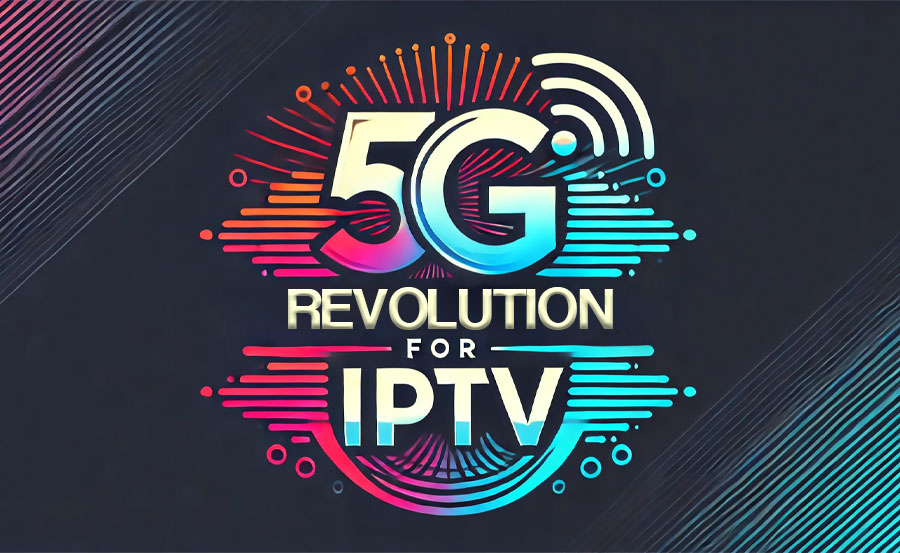The introduction of 5G technology marks a groundbreaking shift in the way we consume media, with IPTV (Internet Protocol Television) set to benefit immensely. As the next generation of mobile internet, 5G offers unparalleled speeds, lower latency, and higher reliability compared to its predecessor, 4G. These improvements are opening up new possibilities for IPTV, revolutionizing the streaming experience by enabling faster, smoother, and more immersive viewing. Here’s what you need to know about how 5G is transforming IPTV and shaping the future of television.
Buy 3 Month IPTV for On-Demand Content
What Makes 5G Different?
At its core, 5G delivers faster data transfer speeds, reduced latency, and the capacity to handle more connected devices simultaneously. While 4G revolutionized mobile browsing and video streaming, 5G takes it to the next level, supporting speeds up to 100 times faster than 4G and latency as low as 1 millisecond. For IPTV users, this means instant loading, high-definition streaming, and uninterrupted access to content even in crowded or high-demand environments.
The Impact of 5G on IPTV
The deployment of 5G is changing the landscape of IPTV in several ways. Let’s explore how this new technology is transforming IPTV and what benefits it brings to both users and service providers.
1. Ultra-Fast Streaming
With 5G’s incredible speeds, IPTV users can enjoy ultra-fast streaming without buffering, even at high resolutions. 4K and 8K streaming, previously limited to high-speed wired connections, can now be easily achieved over a 5G network. This advancement means users can access their favorite content instantly, regardless of location, bringing the dream of high-quality mobile streaming to life.
2. Seamless Multi-Device Streaming
5G supports a vast number of connections within a single network area, allowing users to stream IPTV content on multiple devices simultaneously. Whether it’s a smartphone, tablet, or smart TV, 5G ensures that each device receives the necessary bandwidth for a smooth viewing experience. This capability is particularly beneficial for households with several viewers who want to watch different channels at the same time.Netflix Secrets Revealed: Stream Like a Pro with These Simple Tips
3. Enhanced Mobility and Accessibility
One of the most significant advantages of 5G is its ability to provide high-speed connectivity in previously hard-to-reach areas, such as rural or remote locations. This expansion makes IPTV more accessible to users who previously lacked high-speed internet options, allowing them to stream their favorite shows without interruption. 5G networks also improve connectivity on the go, so users can enjoy IPTV in cars, on trains, or even outdoors without relying on Wi-Fi.
4. Lower Latency for Real-Time Streaming
5G’s low latency is a game-changer for IPTV, especially for live sports, news broadcasts, and interactive programming. With near-instantaneous response times, viewers can enjoy real-time streaming without delays, making 5G ideal for watching live events or engaging in interactive services like live voting or polling. Lower latency also enhances gaming experiences on IPTV, providing a smoother, more responsive experience for cloud-based games and interactive applications.
5. Augmented Reality (AR) and Virtual Reality (VR) Integration
The high bandwidth and low latency of 5G enable IPTV services to explore immersive AR and VR experiences. Imagine watching a football game with virtual overlays of player stats or experiencing a concert in VR with a 360-degree view. These interactive features, powered by 5G, will allow IPTV providers to offer a level of engagement that was previously unimaginable, making entertainment more dynamic and immersive.
How IPTV Providers are Leveraging 5G
IPTV providers are quickly adapting to 5G capabilities by optimizing their services for faster networks. With 5G, providers can deliver content in higher resolutions and experiment with interactive features that demand minimal lag. Additionally, many IPTV services are working to develop and enhance their mobile apps to take full advantage of 5G, allowing users to enjoy the same seamless experience on mobile as they do on traditional TV screens.
5G also opens the door for IPTV providers to offer more personalized services, such as user-specific recommendations based on real-time data. With faster data processing and greater bandwidth, these recommendations can be updated instantly, providing users with content tailored to their tastes as they browse.
What to Expect from 5G-Enabled IPTV in the Future
As 5G networks expand, we can expect IPTV to become more versatile, offering features that go beyond simple streaming. From multi-angle viewing options to advanced parental controls and customized interfaces, IPTV on 5G will allow users to tailor their viewing experience like never before. Moreover, the synergy between 5G and AI could lead to intelligent content curation, offering users a highly personalized and intuitive streaming experience.Why Is My IPTV Picture Blurry? Common Issues and Fixes
The future of IPTV is also likely to see integration with smart homes, with voice-controlled commands and real-time content suggestions tailored to specific household members. This combination of 5G and IPTV will transform home entertainment into an adaptive, interactive experience, bringing users closer to the content they love in innovative ways.
Conclusion
The rollout of 5G is set to redefine the IPTV experience, making streaming faster, more accessible, and more interactive than ever before. From ultra-fast, high-definition streaming to immersive AR and VR possibilities, 5G is shaping the future of IPTV and elevating it to new heights. As IPTV providers leverage these advancements, users can look forward to a highly personalized, smooth, and engaging streaming experience, no matter where they are. The union of 5G and IPTV is more than just a technological upgrade; it’s the beginning of a new era in entertainment.

